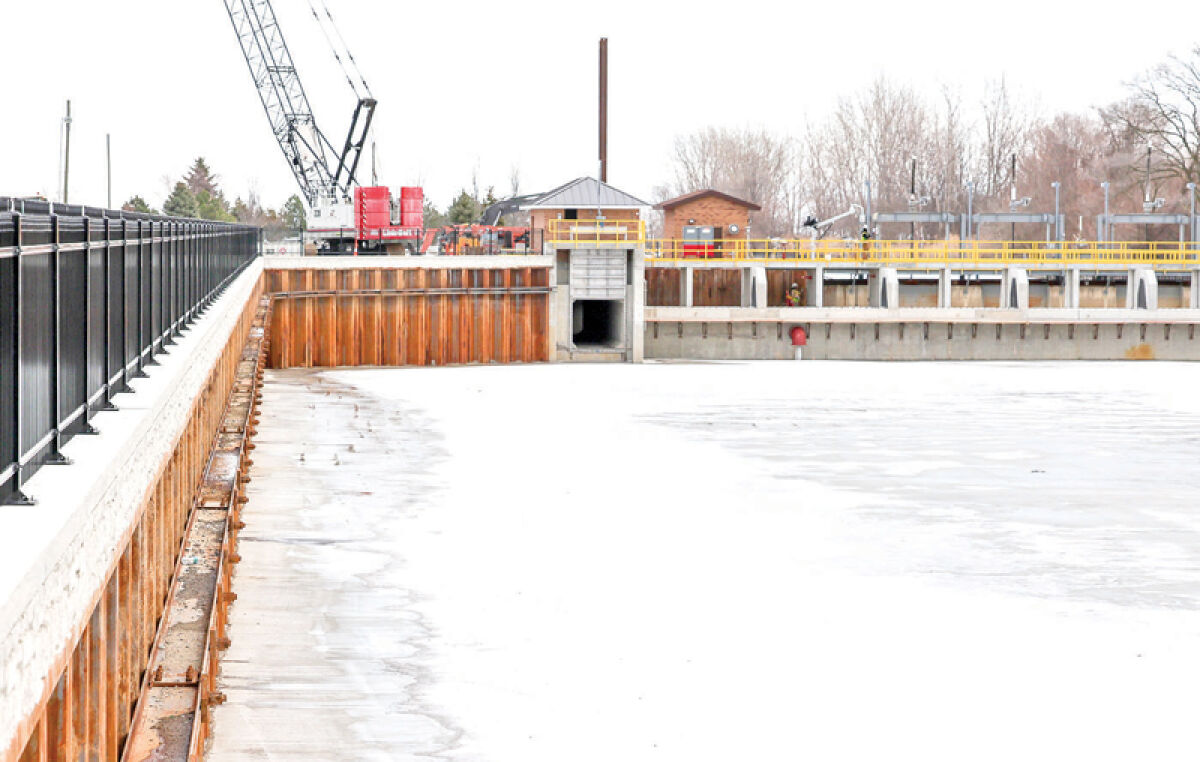ST. CLAIR SHORES — Progress continues on the Chapaton Retention Basin, with a possible ending date in early spring.
Macomb County Public Works Commissioner Candice Miller said the project started a year ago in August. The project was originally slated to be completed by this August.
“But they’ve made excellent progress,” Miller said. “We’re hoping that maybe even the spring, summer anyway. It certainly won’t be behind schedule.”
There is no exact date for the Nine Mile Road boat launch opening, but Vince Astorino, operations manager of the Southeast Macomb Sanitary District, said spring is the goal.
“Realistically, it could be early summer for that,” Astorino said.
The main goal of the project is to reduce the number of combined sewer overflows they discharge into Lake St. Clair. CSOs occur when combined sewer systems become overwhelmed with rainwater and sewage, and the untreated water flows into nearby lakes and rivers.
The project for the Chapaton Retention Basin will expand the canal, giving it an extra 13 million gallons of storage.
Other parts of the project include replacing the sluice gates, separating sanitary sewage from storm water in a 14-acre area, replacing an old pipe and adding a trash collector at the end of the pipe.
The project costs around $27 million. According to a press release, $25 million comes from the American Rescue Plan Act funds from the state and $2 million was allocated by the state last year.
A $16 million project is going to upgrade the 55-year-old electrical equipment in and around the pump station. They are also going to add three new custom-made 2-megawatt generators.
“We have made enormous progress here at this retention basin, this wastewater plant, to greatly reduce the amount of CSOs that we discharge into the lake after a heavy rain event,” Miller said.
She went on to say a lot of the infrastructure was old and antiquated.
“Something is happening to the weather patterns where we’re getting a lot more rain and the intensity of the rain events is more than anyone, any of the older infrastructure can handle anyway,” Miller said.
They’ve completed their in-system storage project, Miller said.
“Which is sort of the rubberized bladder, the weir, within the pipe that runs down here from Eastpointe, down to this pump station,” Miller said.
Miller said this has been online for a couple of months and it is estimated to reduce the county’s CSOs by 10-15%. The Chapaton Retention Basin project is estimated to reduce CSOs by 40%. This project and the Jefferson sewer project combined will reduce the amount of CSOs discharged into the lake by around 80%.
Astorino said Z Contractors has been a great contractor and construction has gone smoothly.
“It’s (a) real team effort between us and Z’s,” Astorino said.
Astorino said weather events have not held up the construction that much.
Miller said she also thinks the residents of Macomb County have been supportive of the projects.
“We all live here, we live on the lake,” Miller said. “I think everybody understands the importance of it.”
The lake has many different uses including recreation and a source of drinking water.
Miller said they’ve been open about the progress and of the project in general. She said on social media, comments posted by residents have been “overwhelmingly supportive.” She also said local, county and state leaders have also been supportive of the project and even viewed it before.
Miller said they’ve worked with neighbors on either side of the retention basin and acknowledged how noisy it can be. In combination with a couple neighbors, they added a new wall and planted trees.
“We recognize the inconvenience of it for them,” Miller said. “But it’s been a short-term thing. Long term, actually as I say generationally, that’s what we’re focused on.”
Miller said they’d like to see Oakland County do something similar. According to her office, Oakland County discharges its CSOs directly into Macomb County waters.
“It’s a festering wound, quite frankly, that Oakland County won’t do anything to reduce their CSOs,” Miller said.
She also recognizes the project costs a lot of money.
“You have to have the political will to focus to want to do these kinds of things,” Miller said.
 Publication select ▼
Publication select ▼





















